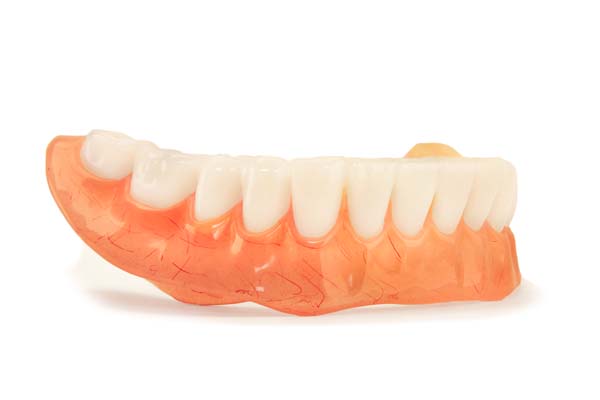What Types of Materials Are Used in Making Dentures?

A lot of people are curious about what materials are used to make dental dentures. This article will show you the different types of materials that can be used and their benefits, and which material is best for your situation.
What are Dental dentures?
Dental dentures are used to replace missing teeth that cannot be fixed with a dental bridge. A denture is removable and can typically be taken out at night when you sleep, but it may also have to be removed during meals if it obstructs your chewing ability or makes speaking difficult.
There are two types of dentures: complete set (all-on-four) dentures and partial dentures (traditional). Both types require using an adhesive material called denture adhesive cream before placing them in your mouth so they will stay securely on your gums all day long.
However, there are some differences between these two sets as far as the materials go, which we'll discuss later in this article.
Adhesive
First, let's take a look at denture adhesive creams. These come in a tube or jar and are made of waxes, fats, oils, and emulsifying agents. Some dentures will already have denture cream embedded into them (such as the Snap-On Smile), but if your dentures don't contain any adhesives, you'll need to apply some before putting them in your mouth.
This is where denture cream comes into play - it acts like glue so that they won't fall out when talking or eating/drinking.
Materials
Before we get further into which materials can be used for making dentures, let's talk about how these items all work together.
The most common material types used to make quality dental appliances include acrylic resin plastic, polyethylene, and denture teeth.
Acrylic resin is the material most dentures are made of. However, plastic can also make partial dentures. Polyethylene (plastic) is a popular choice for people who wear removable dentures because it's less expensive than other materials but still strong enough to hold up without any problems or discomfort.
Denture teeth come in three different styles: regular denture teeth, small compact denture teeth, and sizeable full-coverage denture teeth. Average-sized dentures have one tooth per arch, while smaller ones typically consist of two to four on each side.
Full coverage options give you an even more extensive set with more than six individual pieces that fit into your mouth all at once, so you have a full smile.
Recommendation
Now that we know what materials dentures are made of, the next question is: which material do dentists and dental technicians recommend?
It depends on your case - the type of teeth you lose, how many teeth need to be replaced, along with any special requirements. For example, suppose you go through extensive oral surgery or take medications like blood thinners. In that case, it's best to stick with polyethylene because the acrylic resin can cause bleeding in some cases.
On the other hand, if you wear denture adhesive cream every day (which most people do), then you'll want an appliance that contains denture adhesive so it will stay securely attached all day long. Again, this would be either acrylic resin plastic or polyethylene.
Conclusion
In the end, denture adhesives work best for most people since you don't have to worry about them falling out when talking or eating/drinking - they'll snap right back into place if anything causes it to pop off your gums (like drinking from a straw). Also, dentures that contain denture adhesive are typically made of acrylic compact ones depending on how many teeth need replacing and what kind of individual case we're dealing with.
Request an appointment here: https://brianbelldds.com or call Brian Bell, DDS at (559) 366-9006 for an appointment in our Tulare office.
Check out what others are saying about our dental services on Yelp: Dentures in Tulare, CA.
Related Posts
If you have partial dentures, you know how important it is to take good care of them. Repairs can be costly and sometimes damaged dentures may require a total replacement. When it comes to partial dentures, there are many parts prone to breaking, including the teeth, clasps, acrylic plastic base and any metal pieces. When…
Deciding that it might be time to start considering dentures isn’t always the most exciting conversation. However, it can be challenging for many people to determine if they are ready for dentures or if there is another option. First, it is crucial to recognize that most of us will have dentures at some point in…
When it comes to replacing missing teeth, implant supported dentures are an effective and long-lasting choice. An implant is an artificial tooth root that is often inserted in the jawbone. It is used to hold an artificial tooth in place. All-on-4® dental implants are increasingly being recommended for people who need to replace multiple lost…
Many have heard of Invisalign®, a type of clear aligner treatment. However, fewer are familiar with lingual braces and how they work. This review offers an in-depth look at Invisalign vs. lingual braces with insights into the pros and cons of each option and when one might be preferable to another. Invisalign and lingual braces both…
